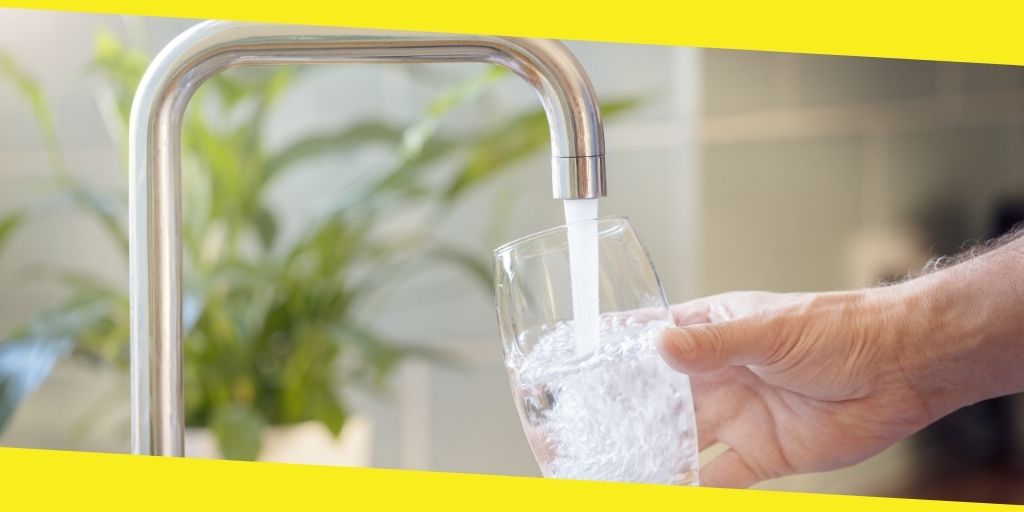How You Can Improve the Drinking Water in Your Home
Water is considered as a life-sustaining fluid. However, if your drinking water is a tap water, it might contain more other elements than H2O. In some communities, whether in urban or rural areas, the water may contain potentially harmful chemicals like lead and chlorine.

If you want to ensure that your drinking water is safe and clean, below are some of the ways on how you can improve the overall nutritional value and quality of your drinking water in your home:
Contents
ToggleUse Water Filtration Systems
A water filtration system may eliminate impurities and enhance the taste of your drinking water. Depending on your preferences, here are the different water filtration systems you may consider:
-
Reverse Osmosis System
Like Filtap, a reverse osmosis system can be a good solution for any home. It works hard to improve the appearance, odor, and taste of your water by getting rid of the contaminants. One of the best things about this system is that it has a simple maintenance requirement because of its moving parts, and it’s also easy to clean.
Some of the impurities that can be eliminated using a reverse osmosis system are chlorine, pesticides, lead, detergent, and fluoride. Once these contaminants are removed, they’ll be flushed down to a separate drain, leaving you with healthier and cleaner water.
-
Point-of-Entry Filters
If your water is generally fine but there are instances that it has an unusual taste, odor or color, a purifier installed in your cold-water supply line that comes into your refrigerator or sink can be of great help. Usually, these are smaller filters and could be installed by homeowners with basic plumbing knowledge and have a wrench and pipe cutter. These can also be installed easily and directly on your kitchen faucet.
-
Whole-House Filters
These filters work by filtering all the water you’re using, including that for laundry and showers. Oftentimes, a whole house filter is installed on the primary water supply line and can involve both the main system and pre-filter. In some cases, such filters must be installed by certified plumbers.

Infuse Your Drinking Water with Natural Ingredients
Another way on how you can improve your drinking water quality at home is to infuse it with various natural ingredients that can help enhance the taste while also boosting your water’s nutritional content. To improve your water, you can add a combination of the following ingredients:
- Blueberries
- Cucumbers
- Tea
- Ginger
- Mint
- Strawberries
- Limes
- Lemons
All of those are rich in antioxidants, which increase your drinking water’s positive impact. Not only such natural additives can boost the flavor, but they could also have a positive impact on your overall health.
As a matter of fact, infusing water with some fruits, teas, or vegetables can boost your metabolism, oral health, sleep patterns, skin, headaches, and immune system. Just cut a combination of your favorite vegetables and fruits. Then, add them to your daily drinking water.
Flush Your Pipes
It’s essential if your home is empty for several weeks or months. If the water sits in the pipes, it could get stagnant and collect contaminants and debris. So, if your home is empty for a week or so, let your water run for a few minutes before you get your drinking water.
Replace Your Faucet Aerators Regularly
A faucet aerator is a screen at the end of your faucet. It’s the last line of defense for the majority of household water consumption and can get a buildup that affects your water’s taste, pressure, flow, and quality.
Luckily, there’s a quick fix for this—replace it on a regular basis. Depending on your preferences, you may replace the full aerators or just the screen for an affordable price.
Use Water Softeners
A water softener removes hard minerals like magnesium and calcium from the water before it enters your home. It helps your in-house plumbing and may also improve your drinking water. Typically, softened water doesn’t wear on pipes like hard water, can be gentle on your skin, and tastes better.
Test Your Water
You may find out more about the quality of your drinking water once you have it tested in a certified laboratory. A water test reveals the presence of any harmful pollutants like chemicals and bacteria in your water. In addition to that, it may diagnose some common problems such as foul odors, bad tasting water, and hardness.
Some tap water may also be high in sodium, which is not good for those who follow a low-sodium diet because of their medical condition. So, have your water tested to improve your drinking water in your home.
Conclusion
There are some issues that may contribute to poor quality of drinking water. Most of such causes may be related to how the water is processed or treated. Luckily, with the above tips, you can be assured that your drinking water’s quality will improve, keeping you safe from any harmful chemicals and substances including chlorine.
Recommended For You
Serious Health Risks of Using Mobile Phones
Most Inside
Most Inside offers high-quality recommendations and valuable updates to enhance all aspects of your life, providing premium guidance and enriching experiences.




